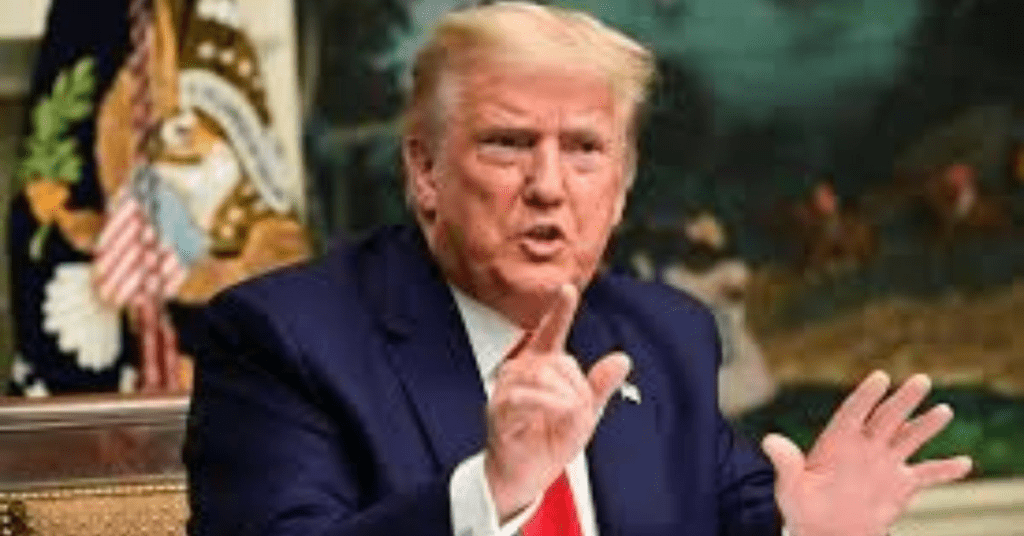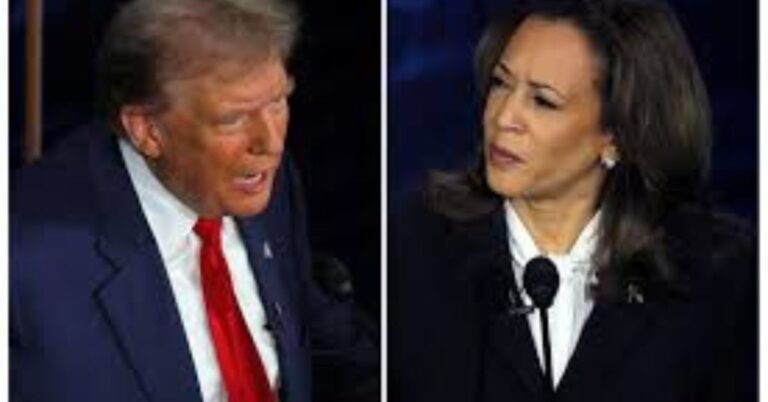In a bold move that signals her deepening engagement with Republican voters, Vice President Kamala Harris has made her latest appeal to Republicans by criticizing former President Donald Trump’s foreign policy track record. Harris, in her most recent statements, has stressed that Trump’s leadership on the global stage left the U.S. weakened and vulnerable to international threats.
This direct critique has sparked intense political debate, particularly as the 2024 election season heats up. By challenging Trump on foreign policy, an area traditionally dominated by conservative leaders, Harris aims to sway Republicans who may feel that their party’s former leader fell short on key issues.
Harris Targets Trump’s Weaknesses in Foreign Policy
Kamala Harris’ latest appeal to Republicans comes at a time when many GOP voters are reconsidering Trump’s leadership. While Trump’s domestic policies, particularly on the economy and immigration, still resonate strongly with his base, Harris has pointed out that his handling of foreign relations was flawed.
Her argument centers on what she sees as a series of diplomatic blunders during the Trump administration. For instance, Harris referenced Trump’s erratic relationship with NATO allies, his withdrawal from key international agreements, and his failure to confront authoritarian regimes effectively. “We were left more isolated than ever under Trump’s leadership,” Harris remarked during a recent event, “and that’s not what makes America strong.”
This rhetoric is designed to plant seeds of doubt among Republican voters, especially those who are foreign-policy hawks and prioritize America’s standing on the global stage.
Reaching Across the Aisle: Harris’ Strategy
Kamala Harris’ latest appeal to Republicans is not merely a jab at Trump but part of a broader strategy to court moderate conservatives who may be dissatisfied with the current direction of the Republican Party. Harris has taken a pragmatic approach, recognizing that while many Republicans support Trump’s domestic policies, foreign policy remains a point of contention.
By focusing on Trump’s perceived failures on the world stage, Harris hopes to peel away voters who value strong, stable leadership internationally. She has continually stressed that the Biden administration’s efforts to rebuild alliances and restore America’s credibility have made the country safer, positioning this as a sharp contrast to Trump’s more isolationist stance.
Furthermore, Harris has consistently reached out to moderate Republicans, particularly those concerned with national security, in her public appearances and speeches. Her strategy is to widen her appeal beyond traditional Democratic circles by offering an alternative to Trump’s polarizing foreign policy.
The Significance of Foreign Policy in the 2024 Election
Foreign policy has often been an under-the-radar issue in U.S. elections, overshadowed by domestic concerns like healthcare, jobs, and immigration. However, in the 2024 race, it’s shaping up to be a critical factor.
Kamala Harris’ latest appeal to Republicans highlights the importance of international relations in this election cycle. With global challenges such as the ongoing conflict in Ukraine, tensions with China, and the rise of authoritarianism worldwide, many voters are paying closer attention to how leaders navigate the global stage.
Harris is betting that she can capitalize on the growing concern about America’s global standing by emphasizing Trump’s perceived weaknesses in foreign policy. This is especially relevant as some Republicans expressed frustration with Trump’s approach to international diplomacy, viewing it as inconsistent and often counterproductive.
Trump’s Foreign Policy Legacy Under Scrutiny


Trump’s foreign policy, often labeled as “America First,” was marked by several controversial moves, such as his decision to withdraw the U.S. from the Paris Climate Agreement and the Iran nuclear deal. While these actions were lauded by his base as efforts to protect American sovereignty, they were also criticized for alienating key allies and weakening America’s influence on global matters.
Kamala Harris’ latest appeal to Republicans zeroes in on these aspects of Trump’s foreign policy. She argues that Trump’s decisions ultimately left America less secure and diminished its ability to lead on critical issues like climate change, global security, and human rights.
Additionally, Harris has pointed out Trump’s inconsistent approach to dealing with authoritarian leaders, such as Vladimir Putin and Kim Jong Un. She claims that Trump’s coziness with these figures only encouraged them, further threatening global stability.
By making these points, Harris is directly challenging Trump’s foreign policy legacy and positioning herself, and by extension the Biden administration, as the stronger and more reliable option when it comes to global affairs.
The Republican Response
Not surprisingly, Kamala Harris’ latest appeal to Republicans has sparked a range of reactions from within the GOP. While some Trump loyalists have dismissed her critique as partisan rhetoric, others within the party have taken a more measured approach.
Prominent Republicans like Senator Mitt Romney and Representative Liz Cheney have echoed some of Harris’ concerns about Trump’s foreign policy, particularly his handling of relations with authoritarian regimes. Cheney, in particular, has been a vocal critic of Trump’s approach to foreign affairs, especially regarding his stance on NATO and Ukraine.
Harris’ message seems to be resonating with a small but significant segment of Republican voters who are looking for an alternative to Trump. These voters may not be ready to fully embrace the Democratic platform, but they are open to candidates who prioritize national security and America’s role as a global leader.
What This Means for the 2024 Race
As the 2024 election approaches, Kamala Harris’ latest appeal to Republicans signals a strategic shift for the Democrats. Rather than relying solely on their traditional base, they are actively courting moderate conservatives who may be disillusioned with Trump’s leadership.
Harris’ critique of Trump’s foreign policy is a calculated move to attract voters who are concerned about America’s standing in the world. By positioning herself as a strong, capable leader on international issues, Harris is aiming to build a broader coalition of support.
Ultimately, the success of Kamala Harris’ latest appeal to Republicans will depend on how effectively she can communicate her message and whether or not she can convince GOP voters that her approach to foreign policy is in the best interest of the nation. In an election that promises to be highly competitive, every vote counts, and Harris is making it clear that she’s willing to fight for every last one.


